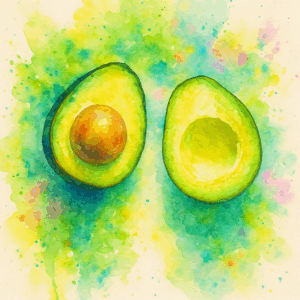Learn French with this clip from Les P’tits Bateaux. Find the full episode here. We do not own the content. The above audio sample and transcription is from Les P’tits Bateaux podcast. We do not own the content. Listen to the entire episode here. quelle jolie question What’s opening up for you with this clip?…
Start quiz, type what you hear, then join the conversation.
Did you find this one challenging or easy? Did you hear something diffferent? What surprised you? What levels did you complete? Comment below and share what’s opening up for you with this quiz.
Learn French with this clip from Les P’tits Bateaux. Find the full episode here. We do not own the content.
The above audio sample and transcription is from Les P’tits Bateaux podcast. We do not own the content. Listen to the entire episode here.
quelle jolie question
What’s opening up for you with this clip? Comment below with what was surprising, easy, challenging and/or interesting.
The snippet in English
Find a translation of this snippet here, how much of this did you hear?
Oh mais quelle jolie question Anouilh, à partir de quel âge commençons-nous à aimer ?
Olivia Benhamou, vous qui êtes psychologue, y a-t-il seulement une réponse ?
Alors effectivement, il n’y a pas de réponse scientifique à cette question très importante.
Mais une première réponse se trouve peut-être dans le fait de définir ce que nous entendons par le fait d’aimer.
Oh, what a lovely question, Anouilh: at what age do we begin to love?
Olivia Benhamou, as a psychologist, is there even one answer?
Well, there is no scientific answer to this very important question.
But a first answer may lie in defining what we mean by love.
The above translation from Deepl
What does “y a-t-il seulement” mean?
y a-t-il seulement une réponse ? (is there even a single answer? / is there only one answer?)
Sense: rhetorical doubt; “even” = seulement here. Slightly formal/inverted question; spoken French prefers est-ce qu’il y a seulement… or y a-t-il vraiment….
Pronunciation: [i a til sœl-mɑ̃ yn ʁe-pɔ̃s]. In casual speech: y a → [ja].
Close variants: y a-t-il vraiment une réponse ? (is there really one answer?); est-ce qu’il existe seulement une réponse ? (does even one answer exist?).
Example: Face à cette question, y a-t-il seulement une réponse ? (For this question, is there even one answer?)
What does “le fait” mean?
le fait (the fact). Neutral noun; common in formal or careful speech/writing.
Key uses: le fait que + subjunctif (le fait qu’il vienne…) (the fact that he’s coming…), du fait de (because of/due to), de fait (in fact/as a matter of fact).
Fixed phrases to know: le fait est que… (the fact is that…), en fait (actually/in fact), au fait (by the way—different meaning despite form).
Mini-examples: C’est un fait. (That’s a fact.) Le fait que ce soit tard pose problème. (The fact that it’s late is a problem.) Du fait de la pluie, on annule. (Due to the rain, we’re canceling.) En fait, tu as raison. (Actually, you’re right.) Au fait, tu pars quand ? (By the way, when are you leaving?)
Simply Tranlsated ?
dans le fait de définir (in the act/fact of defining)
ce que nous entendons par (what we mean by)
le fait d’aimer (the fact/act of loving)
Natural English: (in defining what we mean by love).
Cleaner French alternatives:
en définissant ce que nous entendons par l’amour (more fluid)
dans la définition de ce que nous entendons par l’amour (formal but clearer)
quand on définit ce que nous entendons par “aimer” (neutral).
Note: le fait de + infinitif is a legalistic/academic filler you can usually trim without losing meaning.
Les P’tits Bateaux Podcast
Official synopsis: Les enfants posent des questions, des spécialistes leur répondent. Jeunes (et moins jeunes !) peuvent poser toutes les questions possibles et imaginables directement par message vocal via franceinter.fr, sauf pendant les vacances.
I recently discovered this podcast from InterFrance and love it. It’s kids posing questions and the host brings in experts to explain. And it’s aimed at young French kids, not French learners. That’s my favorite kind of content. Being for French kids is what makes it so good.
You’ve got real people (a kid, a host, and an expert), all speaking real French — no AI generated stuff here. The kid asks a question, and then an expert explains it in short, clear language. There’s a ton of repetition, natural turns of phrase, and just enough challenge to keep your ears working.
And because it’s meant for French-speaking kids, the adults naturally explain things simply but not condescendingly. You get exposed to rhythm, tone, interjections (bah, ben, alors), and full sentences — but also some real dialogue dynamics. And that’s gold if you’re trying to move from textbook filler to actually speaking and thinking in French.
Improving your French Listening Comprehension with Podcasts
On this site, fast spoken French is finally accessible to all levels. The tool break podcasts into short clips each set to transcription fill-in-the-blank practice. My favorite practice in class is always dictées. While they can seem overwhelming at first, the confidence boost and skills payoff for doing the work pays off. They’re perfect for anyone at any level, from advanced students to those just starting.
We use podcasts and our practice exercises to make it possible for anyone, anywhere to immerse in French with fun and ease. Join us and enjoy French, one short clip at a time. Let’s learn together!
Make the most of the site:
- Daily Podcast Listening: Start your day with a French podcast from our collection. Choose episodes that align with your interests to keep it engaging.
- Active Listening Practice: As you listen, try to pick out key phrases and vocabulary. Use our daily quizzes to test your understanding and reinforce learning.
- Repeat and Shadow: Listen to the same podcast segment multiple times. Try to mimic the pronunciation and intonation to improve your spoken French.
- Note-taking: Jot down new words or phrases you encounter. Review these notes regularly to enhance vocabulary retention.
- Reflect and Respond: After each episode, summarize the main points in French, either in writing or aloud. This helps in consolidating your learning and improving your expressive skills.
- Read More:
- True Beginner or A1 Learners: discover tips learning with podcasts at an introductory level.
- Discover all the podcast clips on FrenchIRL organized by level.
- Top Tips: Here’s how I make the most of my own site.
I created the French In Real Life project because I wanted to understand more than just my teacher and youtubers who cater to learners. I wanted to understand the French I hear in France. I hope you can benefit as much as I have. Become a supporting member for access to all clips.
What’s opening up for you?
Comment below with what’s opening up for you with this clip. What do you love about this? What was challenging? What was easy? Share your learning progress below!
Learn French with this clip from Les P’tits Bateaux. Find the full episode here. We do not own the content. The above audio sample and transcription is from Les P’tits Bateaux podcast. We do not own the content. Listen to the entire episode here. quelle jolie question What’s opening up for you with this clip?…
Start quiz, type what you hear, then join the conversation.
Did you find this one challenging or easy? Did you hear something diffferent? What surprised you? What levels did you complete? Comment below and share what’s opening up for you with this quiz.








